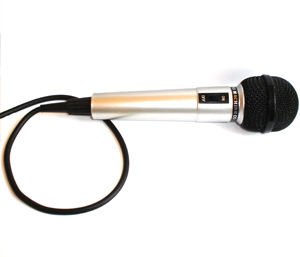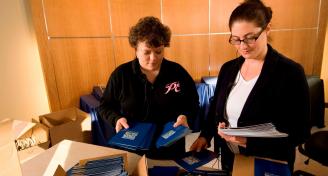Speak Easy... Taking the Pain Out of the Speaker Selection Process!
 Selecting the perfect speaker for an event can be a make or break decision for the entire event, but it’s often a process to which only a small amount of time is dedicated. Think about the amount of time you spend on other logistical elements like food and beverage, entertainment, décor, and activities and compare that to the amount of time that typically goes into speaker selection. While all of these areas are certainly important to the event, few areas have the ability to move the needle on the meeting objectives you have set like the right speaker can.
Selecting the perfect speaker for an event can be a make or break decision for the entire event, but it’s often a process to which only a small amount of time is dedicated. Think about the amount of time you spend on other logistical elements like food and beverage, entertainment, décor, and activities and compare that to the amount of time that typically goes into speaker selection. While all of these areas are certainly important to the event, few areas have the ability to move the needle on the meeting objectives you have set like the right speaker can.
The right speaker with the right content delivered the right way to your audience can measurably increase sales, increase performance, increase customer satisfaction, improve profits, expand engagement, recruit more volunteers, and more. Given the possible outcomes of a highly effective speaker, this is one of the most crucial elements of the planning process and requires a very strategic approach.
Work backwards
Identify your list of desired outcomes or take-aways from a speaker, before looking at any speaker bios or video clips. If the desired outcomes are driving the process, it will be much easier to select the best possible speaker. Never adjust your expected outcomes to meet what a particular speaker is able to provide.
Get their numbers
No, not contact phone numbers or their fee amount; get their metrics. Ask any speaker under consideration to show how they added value to another group with objectives or take-aways that were similar to yours. Good speakers understand the importance of metrics and work with their groups to fully measure and understand their performance. If they aren’t able to share measurable impact from previous programs, it should be a red flag for you.
See the speaker in action …
… With a group that compares to yours. Many planners will recommend that you attend another event where the speaker you are considering will be presenting. Take this one step further – don’t just attend any event, try to attend one that has similarity to your group (i.e. demographic, objectives or messaging, size, etc).
Your group is unique … your speakers’ speech should be too.
This is not to say that the speaker you select should develop a completely new presentation or talk specifically for your audience; after all, you selected him/her because your desired outcomes matched his/her list of speech outcomes, and his/her metrics supported those outcomes, right? Right. Before you go to contract, make sure that your speaker is willing to meet with the key stakeholders involved with your meeting to get a very clear understanding of your audience and the desired outcomes. Excellent speakers will use this knowledge to refine their content and deliver it in a way that specifically targets and engages your audience.
Bonus: Measure, measure, measure
Your engagement with your speaker is not over when he or she steps off the stage. Remember when your excellent speaker was able to provide metrics of how his/her content helped other groups reach objectives? He or she will expect the same from you. During your planning process, work with your speaker to design the measurement components and criteria that ultimately tie back to your overall objectives. Depending on your objectives, your measurement process may take place over intervals of time (i.e. immediately, 30 days post meeting, 90 days post meeting, 6 months post meeting, etc.) and your speaker will be keenly interested in all of these results.
Image courtesy of SRGDBoy




